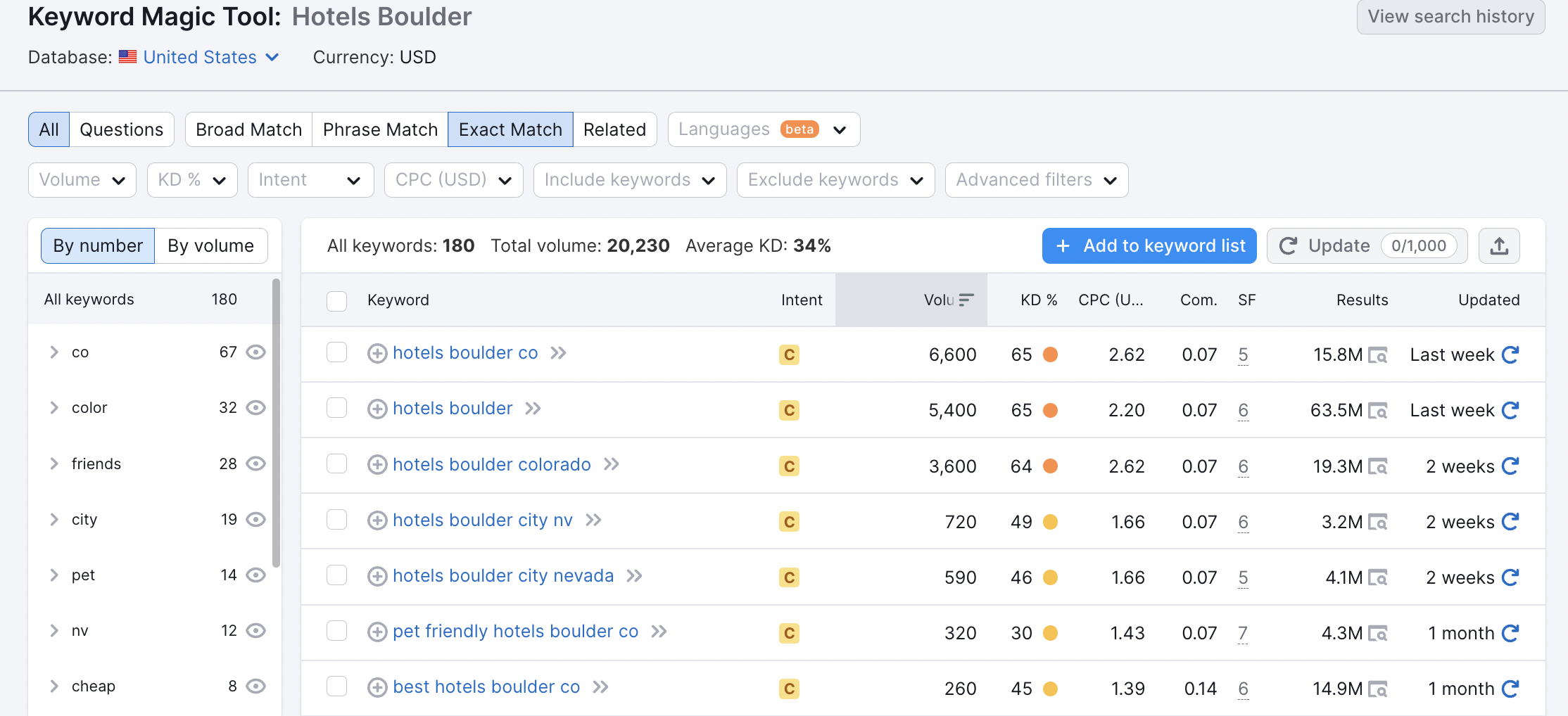Choosing the right keywords for your business is crucial for attracting the right audience to your website and increasing your online visibility. Keywords are terms or phrases that people use when searching for products or services online, and the right keywords can help potential customers find your website quickly and easily. In this article, we’ll guide you through the steps to choose the right keywords for your business and provide some examples to help you along the way.
Why does it matter?
When you choose the right keywords, your website is more likely to appear at the top of search engine results pages (SERPs). This increased visibility means more people are likely to find your website and learn about your products or services.
Targeted traffic: The right keywords help attract the right audience to your website. By targeting keywords that are relevant to your business and products, you’ll attract people who are more likely to be interested in what you have to offer.
Better search engine rankings: By targeting the right keywords, you’ll improve your website’s search engine rankings. This means that when people search for those keywords, your website will appear higher in the results, making it more likely that they’ll click on your website.
Increased conversions: When you attract the right audience to your website, you’ll increase your chances of converting those visitors into customers. By targeting the right keywords, you’ll attract people who are more likely to be interested in your products or services, making it more likely that they’ll make a purchase or take some other desired action on your website.
1. Determine your target audience
2. Research your competitors

Want to speak to our team about SEO and how it can benefit your business? Fill out the form below for a free consultation.
3. How to create a winning keyword list
- Start with a broad idea or topic related to your content or business.
- Focus on relevancy: Make sure that the keywords you choose are relevant to your content, website, and business. This will help you attract the right kind of audience and improve your website’s ranking.
- Consider using long-tail keywords, which are longer and more specific phrases that can better target your audience.
- Analyze the keywords used by your competitors and incorporate relevant ones into your list.
- Use keyword research tools: Use tools like Google Keyword Planner, SEMrush, or Ahrefs to find related keywords and their search volume. These tools can also give you insights into the competition level of specific keywords.
- Don’t forget location-based keywords: If your business is location-specific, use geographic keywords to improve local search results.
- Continuously refine your keyword list: Refine your keyword list regularly based on your website analytics, industry changes, and new trends.
By following these tips, you can generate an effective keyword list that helps you attract the right audience, improve your website ranking, and drive traffic to your website.
Want to speak to a human? Give us a call on 303.473.4000 or click here to get in touch.
4. Consider keyword relevance
When choosing keywords, make sure they’re relevant to your business and products. For example, if you run a bakery, you might want to target keywords like “baked goods,” “fresh bread,” and “pastry shop.” Make sure your keywords accurately reflect the products or services you offer.
5. Check keyword popularity
Use keyword research tools to check the popularity of your keywords. The tools will show you the monthly search volume for each keyword and give you an idea of how competitive each keyword is. You’ll want to choose keywords that have a high search volume but aren’t too competitive, so you have a better chance of ranking for them.
6. Use long-tailed keywords
Long-tail keywords are more specific and tend to have lower competition. They’re also more likely to drive targeted traffic to your website because they reflect the intent behind someone’s search. For example, instead of just targeting “bakery,” you might want to target “vegan bakery in Los Angeles.”
7. Regularly review and update your keywords
Finally, don’t forget to regularly review and update your keywords. The search landscape is constantly changing, so it’s important to stay up-to-date on the latest trends and changes in keyword popularity.
Here are a few examples of how different businesses might choose their keywords:
- A clothing boutique: “fashionable clothes,” “trendy outfits,” “women’s clothing store,” “designer clothes,” “boutique near me.”
- A plumbing company: “plumber,” “leaky pipes,” “toilet repair,” “emergency plumbing services,” “residential plumbing.”
- A pet grooming salon: “pet grooming,” “dog grooming,” “cat grooming,” “pet grooming near me,” “mobile pet grooming.”
In conclusion…
By following these steps, you’ll be able to choose the right keywords for your business and increase your online visibility. Remember to focus on relevance, popularity, and long-tail keywords, and don’t hesitate to experiment and make changes as needed.
Want to speak to a human about how SEO can improve your search ranking on Google and create growth for your business? Give us a call on 303.473.4000 or click here to get in touch.
Stay tuned for more…
Jeff

Busy running your business? We can help..
Our expert team is here to help you with all of your PPC and Digital Marketing needs. Click here to start your free consultation today.
READY TO START GROWING YOUR BUSINESS?
Schedule a free, No Obligation Consultation about our Digital Marketing Services
let’s start marketing
Say Hello!
We would love to discuss your project with you. Get in touch by filling out the form below and we’ll contact you asap. Want to speak to a human now? Text or call 303.473.4400

